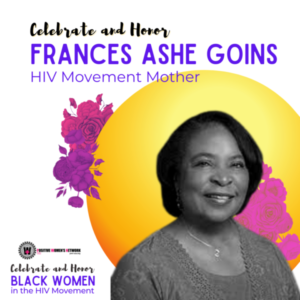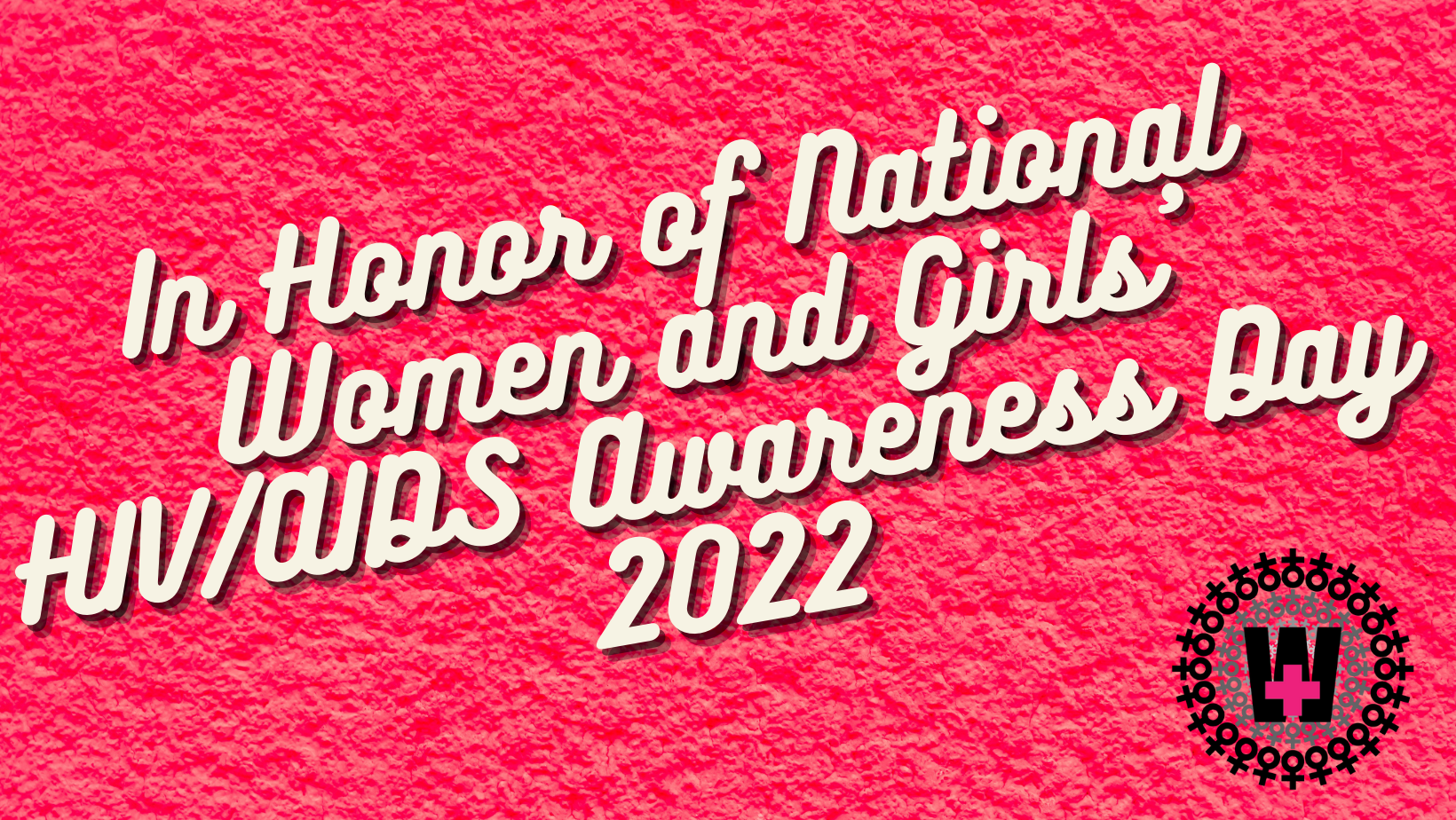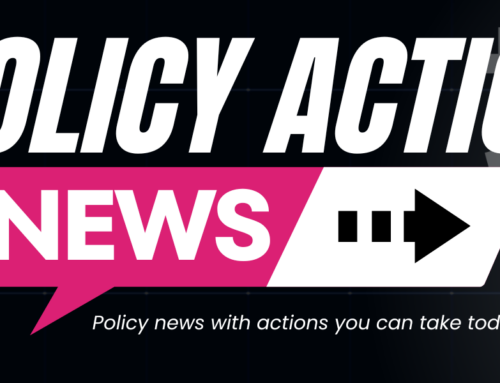 During her tenure as Acting Director for the US Department of Health and Human Services Office on Women’s Health, Frances addressed issues at the intersections of HIV and violence against women. In 2005, she developed and launched the first ever National Women and Girls HIV/AIDS Day (NWGHAAD) to bring attention to the need for women-specific approaches to HIV prevention, awareness, and care. Since that time, NWGHAAD has been used to demand a focus on policies, programs, and structural solutions for women in the HIV epidemic.
During her tenure as Acting Director for the US Department of Health and Human Services Office on Women’s Health, Frances addressed issues at the intersections of HIV and violence against women. In 2005, she developed and launched the first ever National Women and Girls HIV/AIDS Day (NWGHAAD) to bring attention to the need for women-specific approaches to HIV prevention, awareness, and care. Since that time, NWGHAAD has been used to demand a focus on policies, programs, and structural solutions for women in the HIV epidemic.
The failure to incorporate a gender lens in the federal HIV response, and the subsequent systematic devaluing of women’s needs is yet another form of structural violence against women and transgender people living with HIV. These inequities take many forms, from the lack of adequate representation of women of trans experience on the current President’s Advisory Council (PACHA) on HIV/AIDS, to a lack of attention to, funding and programming for women who are already living with HIV. Outrageously, the word “reproductive” literally does not appear in the current National HIV/AIDS Strategy, not to mention there is no focus on sexual health and rights of people living with HIV. This type of exclusion is only possible when those directly impacted by an issue are not at the table. For women and people of trans experience living with HIV, sexual and reproductive healthcare are often stigmatizing and discriminatory, adding another layer of oppression that leads to poor health conditions and outcomes.
In order to create impactful and lasting solutions in the HIV response, we must fully address the intersecting racial, gender, and class oppressions that disproportionately harm Black and Latinx women, trans and gender diverse folks. Gender-nuanced impacts of HIV criminalization, including the documented disproportionate impact of HIV criminalization laws on Black and Latinx women, abridgement of parental rights and the policing of breast and chest feeding by people living with HIV, receive little attention in federal policy. Furthermore, proclamations that life expectancy of people living with HIV is approaching “normal” in the U.S. mask severe racial and gender disparities in morbidity, mortality, quality of life and health outcomes, particularly for Black women with HIV and trangsender women living with HIV.
In the U.S. context, the bodies, sexuality, reproduction, and movement of Black, Indigenous, and Women of Color have been controlled and policed for hundreds of years, often violently and at a great cost to our rights. Today, for women and girls living with HIV, HIV stigma, misogynoir, transphobia, sexism and racism intersect to magnify attacks on our rights from all fronts. Yet we know that our human rights should never be conditioned on HIV status, race, ethnicity, sex, gender expression or identity, or any other aspect of who we are.
Women living with HIV need and deserve the following actions in the federal HIV response to correct these inequities:
-
Ensure meaningful involvement by transgender people living with HIV and women living with HIV in the federal HIV response through equitable representation of relevant PLHIV networks on PACHA, CHAC (CDC/HRSA Advisory Committee), and OARAC (Office of AIDS Research Advisory Council).
-
Commit to measurably improve quality of life for Black women living with HIV. This includes passing universal healthcare and lifting Black women living with HIV out of poverty by eliminating the gender pay gap and increasing the minimum wage, creating pathways to employment, and increasing income eligibility caps for essential programs to a reasonable 2022 level.
-
Emphasize high-quality holistic, gender-affirming and culturally responsive services in the HIV response, including a commitment to measurably improve the physical, mental and emotional wellness of women and people of trans experience living with HIV
-
Affirmatively commit to upholding sexual and reproductive rights for all people of all genders and ages living with HIV, throughout the federal HIV response, including high-quality, holistic, non-stigmatizing gender-affirming and culturally-responsive healthcare services that honor full bodily autonomy and reproductive freedom, the right to parent and not parent, and which ensure that women living with HIV, including women of trans experience, have long, healthy lives free of violence and preventable illnesses.
-
Ensure safety and protect human rights of women and transgender people living with HIV. The federal response should include affirmative commitments to end all forms of violence against transgender and gender diverse people, including legislative violence. In addition, the federal response to HIV should use all available levers to decriminalize HIV, decriminalize sex work, eliminate the PEPFAR anti-prostitution pledge, and end invasive surveillance practices that target people living with HIV, such as molecular HIV surveillance.
Read Demanding Better: An HIV Federal Policy Agenda by People Living with HIV.
Positive Women’s Network-USA calls on the federal government and all community partners to use, today, National Women and Girls HIV/AIDS Awareness Day—March 10, 2022—to commit to prioritize the needs of women and girls living with HIV every day! It’s time to finally make good on promises to uphold the human and bodily autonomy rights of all women and people of trans experience so we may lead long, healthy, dignified and productive lives free from stigma, discrimination, and violence in all forms. Nothing else will do. When all women and girls living with HIV are free, all of us will be free.




